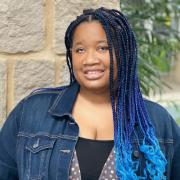Journeying Together: How Our Program Addresses Race and Anti-Bias Education
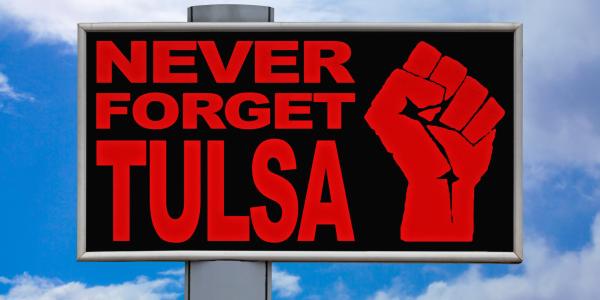
You are here
Editors' Note
Creating equitable learning opportunities is at the core of NAEYC’s mission and is the focus of this issue of Young Children. As put forth in NAEYC’s “Advancing Equity in Early Childhood” position statement, addressing structural inequities “requires attention to both interpersonal dynamics—the day-to-day relationships and interactions at the core of early childhood education practice—and systemic influences—the uneven distribution of power and privilege inherent in public and private systems nationwide, including in early childhood education.”
As part of this digital issue, Young Children sought to examine how to make progress toward these goals in practice. How do early education programs begin to address systemic inequity? How does the work begin? What does it look and sound like? To answer these questions, we asked Chris Amirault, school director of Tulsa Educare MacArthur in Tulsa, Oklahoma, to share the work he and his staff are doing to address racism and bias. He and six of his colleagues recently gathered to share their approaches and insights.
In late May and early June 1921 in Tulsa, Oklahoma, an alleged incident in a downtown elevator sparked days of violence. Mobs of White people authorized by city officials brutally attacked the homes and businesses of Tulsa’s Greenwood District, also known as Black Wall Street. They destroyed dozens of blocks of the district, then the wealthiest Black community in the United States. They killed at least 150 people and probably far more.
Despite being considered by many to be the worst single incident of racial violence in our nation’s history, the Tulsa Race Massacre has until recently been unknown to most US citizens. It has rarely been taught, even in Tulsa’s schools. Yet the community trauma of the event—the excoriating legacy of homes, businesses, wealth, and lives lost—has lasted for a century.
As the city and community approach the centennial of the Tulsa Race Massacre, many organizations are recognizing this event. In 2020, Tulsa Educare committed to learning about the massacre and participating in centennial activities. As part of that work and in response to the agency’s vision and mission, our NAEYC-accredited program reached out to Hannibal Johnson, author of Black Wall Street 100: An American City Grapples with its Historical Racial Trauma. Johnson presented a workshop for the entire organization of several hundred early childhood educators, family advocates, support staff, and administrators. All employees received a copy of his book.
As the school director at Tulsa Educare MacArthur, I knew that many members of our diverse faculty and staff wanted to engage deeply with this work. However, as a long-time facilitator of diversity, equity, and inclusion work, I knew that simply diving into such challenging, difficult content was likely to exacerbate the existing, unaddressed fissures within our community rather than move toward healing them. This was particularly true given the horrific string of violence against Black people unfolding within the pandemic summer of 2020. Also, as a White male administrator from New England with very little experience within and understanding of the Black community in Tulsa, I felt I needed to decenter my own role as an authority and elevate the voices of those within this community as we all learned together.
So, following the workshop on the massacre and the distribution of the books, I designed and led a training for a racially diverse team of six facilitators to guide a book discussion group. Teachers Melodie Benish, Nicole Tate, Precious Harris, and Thena Knight, along with family advocates Jennie Williams and Michelle Bowers, dove into this project with their whole hearts and minds. We engaged in several months of reading, research, discussion, and reflection to prepare to support our colleagues in the book discussion group. We learned about the history and systems of racial injustice in the United States, developed facilitation and conflict resolution skills, and did the hard work of establishing a shared mindset of rigor, tolerance, honesty, and brave confrontation.
We have since begun our book discussions, replicating much of the structure of our facilitation training so that participants can themselves facilitate this important work within our school and beyond. What follows is the facilitation team’s reflection on this work, shared both as an encouragement to you and to connect to the ideas presented in this issue of Young Children. We hope that you too can find ways to engage your own organizations and communities in the ongoing work of racial and social justice. – Chris Amirault
Chris Amirault: Why did you choose to get involved in the Tulsa Race Massacre/Black Wall Street facilitator training? Why was it important to you as an educator and advocate for children and families?
Nicole Tate: I chose to get involved because I wanted to learn how to facilitate and impact others with my personal experience, and to share the stories that folks like my grandfather shared with me, stories that I didn’t learn in school.
Jennie Williams: Like Nicole, I wanted the opportunity to learn about something that I didn’t learn about growing up in Oklahoma. I feel like it’s a travesty that I didn’t know about Black Wall Street. I also wanted to develop my facilitator skills so that I can help others learn about these really hard things going on in the world and to support them.
Precious Harris: I joined this group of educators because I thought that I should be part of these types of conversations. I have a lot to say, but I can have a hard time saying it without getting upset, so I thought that stepping into a facilitator role was a good idea. Going to [Tulsa’s] Booker T. Washington [High School] and not knowing anything about this massacre was painful, so knowing how to talk to and with my children about what happened, having accurate information, seems really important.
Michelle Bowers: Before we started this training, I had begun grappling with my own White privilege, but I didn’t know how to approach it. This project felt like a tangible way to confront that while learning about these historical facts.
Thena Knight: Yes, when I started, I didn’t really understand the concept of White privilege, but getting deeper into it, I can see how that privilege did have an impact on my own struggles, which has opened my eyes and has helped me with the children and families in my care.
Melodie Benish: I didn’t know a lot about these historical events either, and I wanted to learn how to facilitate these conversations. To work with my families and children, I need to know how these things affect them. That will help me be a better teacher.
Chris: It’s shocking that most of us didn’t know about this huge event, and even though it happened in the past, we’ve lived through a year in which a lot of related, horrible things have happened. What values or principles did you bring to this work, either individually or as a team? What did the group embrace to ensure you felt valued, safe, and heard?
Melodie: As a group, we’ve embraced the idea that everybody is here to learn. That made us able to view each other in the light of grace, to accept that we are all learning how to put this knowledge into our lives and find ways to use it in our work. All of us are on that journey together. We’re only going to get through this together.
Nicole: And as a group, we embraced that, whatever racial or ethnic group we’re in, we’re all individuals; we all don’t think or feel or believe alike. We made each other feel safe and heard whatever our opinions or perspectives were. We told each other, “I value you no matter what you feel and think.”
Thena: Knowing we could be honest with our feelings and not judged by others for what we said . . . that was important.
Chris: Thinking about your preparation as a facilitator, what did you learn about yourself? What surprised you the most?
Precious: Before I got in this group, I had to work on the challenge of not taking things personally. I’ve always had a hard time with that. Learning to be comfortable with everybody, learning that everyone has different opinions, has made me feel better about my relationships with all of you. Being able to be honest and open has been really important to me.
Jennie: I came into this work feeling like I didn’t fit within a Black community or a White community; I didn’t know how to belong in either. As a Black woman raised in predominantly White culture, I struggled to find my identity or place in my school, church, extended family . . . in most of the parts of the world where I found myself. Work this week is a perfect example: a coworker considered me the “good kind of Black person” so she could talk about an “angry Black woman.” I’m still struggling with how to respond to that.
With that said, in our facilitator group, I’m learning that Black comes in many colors and perspectives, and the things that growing up made me feel different are actually the things that make me feel special. Being in a group of Black women was intimidating initially, but this opportunity has made me feel more connected to my culture and ethnicity than any experience in my life.
Michelle: I had been thinking for a long time that as a White person, I wasn’t aware of some of the microaggressions I might bring into my interactions with other people. I didn’t know how I would even recognize them. But I learned so much just by sitting with other people and listening to their stories, and that has made a powerful, lasting impact on me.
Nicole: As a Black female, I tend to hold back because I think, “I don’t want them to feel this way” or “I don’t want to be labeled as being mad or angry.” With this group, I’m able to be transparent because people are willing to learn about the subject, which makes it easier for me to be me and not put on a show for others.
Chris: I always felt that the strength of our approach was each and all of us! It’s heartening to hear you say that you can be honest, transparent, and really show up. Were there particular resources during our training that you found helpful? How did they change your thinking?
Jennie: Videos about incarceration rates and the ways that the US uses incarceration as a new form of slavery that disproportionately impacts Black men . . . it was a smack in the face to me to realize how entrenched we are as a country in this system. That has helped change the way I talk to my families about hard things that are connected to these systems of oppression, systems that run so deeply in them and us that they are hard to see sometimes.
Michelle: The New York Times redlining article really helped me understand and frame systemic racism. It laid out the timeline and impact redlining had on individuals, which I didn’t know before, and it also explained how those historical systems can have lasting impacts on the way things are today.
Jennie: I found TikTok and YouTube to be helpful. I ended up in this very interesting corner of social media that talks a lot about activism, racism, social justice, and blips in history that I had no idea existed. And because of that, I got into stories about Greenwood, Tulsa, and Black Wall Street, a little corner of the world that was carved out for me to learn about these issues. I knew systemic racism existed, but I didn’t realize how deeply it runs through our society today.
Melodie: For me, Peggy McIntosh’s “White Privilege: Unpacking the Invisible Knapsack” was critical. The questions that McIntosh asks are questions I think about all the time now: paying attention to how we work with the children in our classrooms; how we understand their lives, families, and behaviors; how we frame our interpretations. Her article made me question things I’d never thought of, like where I start from as a teacher with my own assumptions in that work.
Chris: Melodie, I feel like you’re talking about your own transformation as a professional. How has this work changed the way you talk and teach about race and bias with children, families, and colleagues? Can you give us examples of how you now embrace these conversations?
Melodie: McIntosh’s questions are living in the back of my head now. When I talk to a colleague who is different from me in some way, I start to think: “Okay, this is how I understand things from my standpoint; maybe I’m viewing the situation from a different perspective. Do I have an accurate view? How can I check myself to make sure that I’m looking at all of the underlying issues and factors going on here?” I’ve had multiple conversations in the past few weeks with colleagues who I now approach differently. Thanks to our caring and perspective-taking, one experience with two White and one Black colleagues that could have been very difficult allowed us to talk about everyone’s views and give credence and validity to each view without judgment. I walked away thinking that we had never done anything like that before. I don’t think it would have gone that way a few months ago.
Nicole: Yes, exactly. Our work together has helped me approach directly the actions of colleagues that, before, I would just brush off. Even if their behavior was somewhat racist, I would think, “Oh, they don’t know any better.” But since I’ve learned more about facilitation of difficult topics, I have tools to engage them: “Can you expand on that? Can you help me understand why you think that?” That’s enabling me to understand better where they’re coming from instead of thinking, “That’s just who they are.” I think it’s helping them understand where I’m coming from too.
Precious: I had a situation this morning where someone came up to me and touched my hair. I could feel a lot of feelings coming, but then I said to myself, “You’ve been in training for months! You can tell her.” So I told her, “I didn’t appreciate you touching my hair. Yes, my hair is different, and after we talk you can ask my permission to touch it.” And I told her that another person might not smile and talk to her about that touching! I was glad to have the language and skill to have that conversation that, a couple of months ago, would have gone a very different way.
Chris: What experiences were difficult but ultimately beneficial to you in this work?
Jennie: This work has required me to come face-to-face with my own racism, I think. I was raised in a predominantly White community and had mostly White friends, and that was my whole world. I was always very conscious of not wanting to be labeled with the stereotypes that Whites have about Black people because I had been taught very clearly that “that is not how we behave.” This work has shifted my world view, forcing me to sit down and look that part of myself in the face and work through it.
Michelle: One of the questions that I have reflected on repeatedly since we first started was, “When did you know you were White?” I didn’t know how to talk about it; I was nervous talking about my family’s experiences and perspectives about other races. And I was very worried that my talking about these issues would hurt someone else. But then I was shocked to learn that this wasn’t an issue for others—that this lack of knowledge about my own identity was an aspect of White privilege. Thanks to people in this group, I learned that they all had known about being Black for as long as they can remember. It was hard to confront that.
Chris: This past year was a tough one, and a lot of issues that had been swept under the rug were in full view. How did you manage the emotional toll of this work in the midst of the COVID-19 and racial violence pandemics?
Precious: I had a serious emotional breakdown this weekend. I started reflecting on this question on Saturday, after watching a show Friday night about Breonna Taylor. And I felt like, “Wow, I’m in this group talking about past experiences and things that happened decades ago, and these things are literally still going on.” But then I thought, “I’m also in this group where we discuss these things and cry and laugh together.” Being able to be in this group every Friday and freely cry when I feel the need to cry, not having to hold onto those types of emotions, to vent and learn something new, has helped me a lot.
Jennie: This year, I’ve found Ruth King’s book about race and meditation [Mindful of Race: Transforming Racism from the Inside Out] really helpful in learning how to sit with my uncomfortable feelings. This group is also helpful. And having people in leadership here who listen to and validate my concerns and don’t push them under the rug means a lot. These big-systems problems impact our work, and there are days when I feel helpless and frustrated, and I carry my own baggage into the work like we all do. Being able to write an email to my boss, the school director, or the agency executive director and having my perspective received with open arms and understanding . . . those are glimpses of a different world. They make me realize, “The world isn’t all terrible and ugly. There are people who care about this work, and we are creating the world-changers by leaning into these difficult conversations, which affects the environment we work in and thus the children and families we serve for generations to come.”
Chris: There’s no question that we work for an agency that has decided to turn toward the truth, put things on the table, and create a learner-centered approach. We embrace a set of clear, stated, shared values, try to live by them and, when we don’t, we reflect on those mistakes.
Jennie: Right. “Mentioning the unmentionables” isn’t just something that I personally feel is important. It’s part of our agency culture. Many of our agency’s White leaders have been honest and transparent about their own experiences, mistakes, and blind spots. It’s not about the race of the person who is initiating the discussion. It’s whether that person has done the work, is willing to listen, and cares about the people they’re working with. Otherwise, this just doesn’t work.
Chris: And of course, we transform ourselves as we dive into all of this. How did your sense of your own identity and role change in this work? What are you doing differently as a result of those changes?
Jennie: I now acknowledge myself as a leader in this work. I would not have done that before. I feel confident to approach conversations with the perspective of someone who has leaned into this work and now has the right, skills, and knowledge to discuss these things.
Nicole: These issues are not just Tulsa issues or Oklahoma issues. In the US, a lot has been swept under the rug. And it helps me in the long run to know that we can make that change for the little ones who will run our world in the future. They can understand what took place and what’s still taking place, that it’s not okay, and that we’re all here to be beneficial and to contribute to the country, no matter our race or gender. We have to put that work in for those little ones.
Chris: You’ve begun your work facilitating your colleagues’ engagement with these issues. What do you hope that they will learn and do differently as a result of your work?
Precious: A reason we still have racism in our society is because it’s not being addressed directly; people don’t speak up and say, “It’s not okay to do that.” I don’t think that enough people in early childhood education step up and call people in or out, directly saying, “I heard what you said, and I don’t appreciate that.” In this facilitator group, we laugh and joke with each other, but we always speak to each other with respect. I’m hoping that the participants take that and carry it forward with pride. I hope it strikes like wildfire, honestly.
Michelle: My big hope is that people will gain what I feel I’ve gained: the ability to sit, listen, and take in other people’s perspectives. What we’ve done here hasn’t stayed in our group; it’s gone out into the world as actions, as verbs. It’s changed fundamentally the way I speak about race and racism, even with my daughter, in a manner that’s very different from how I was raised.
Jennie: I want to see this change our school. I want to see that we interrupt racism, biases, and microaggressions, that we feel confident to say, “That’s not okay.” I’ve been really focused on our value of “change yourself first.” If I want to see changes in other people, I have to start there. I can see us changing in this group, and I think that can only bring good.
Nicole: I hope that our colleagues will have a better understanding of these issues. This isn’t something that started overnight; some of the things that impact our families are hard for them to see, even though the impact can be traced back generations and generations.
Melodie: What keeps running through my head is that I want other people to gain the knowledge to go out and fight for a better world.
Chris: To wrap up, what’s one key lesson or takeaway you’ve learned doing this work? If you had one thing to share with readers about this work, what would it be?
Michelle: This is a journey, and no one has it all figured out. No one is going to get it perfectly right every time. Be willing to embrace that and lean in.
Precious: Lead with understanding and love. I’ve been in a lot of situations where I didn’t really care about the other person in the group; being with you all, I’ve learned that everyone has a history, and we’ve all been through stuff that the person next to you wouldn’t know about. Getting to know people before brushing them off will open your eyes to who they really are.
Thena: And everyone’s going to have an “oops.” You have to learn from it, dig a little deeper, try to figure it out, and have the attitude that you’re going to grasp the opportunity with both hands.
Jennie: Learning about this is like learning a new language. You have to listen and pay attention, and then you have to be brave and say something and realize it may come out stupid or wrong or infantile and accept correction and learn some more. We all arrived from different places and for different reasons with this work, which means we all needed different things. Due to our different engagement with this content, we all can give different things too.
Chris: There’s a sentence by Norman Fischer that I taped to my computer when I arrived in Tulsa four years ago: “The only reason anyone appears in this world is because they are sacred human beings.” I deeply believe this, and I deeply believe that we each do not know it. We’re not separate. We’re not disconnected. We need each other in every way you can need. If we can do this in the midst of dual pandemics and touch each other’s sacredness in this way, it’s an amazing gift not only for this year but for the future we’ll build together.
Nicole: And it only takes one person to get the ball rolling.
Tulsa Educare is part of the national Educare Learning Network, which works to break the cycle of poverty through early education programs. Educare began in 2000 with a school in Chicago. It now has 25 campuses throughout the United States. Tulsa Educare has four campuses in the city, all near or on the grounds of a public school. Chris Amirault and the teachers featured in this article work at Tulsa Educare MacArthur, which serves 164 children, ages 6 weeks to 4 years old.
Chris Amirault, PhD, is school director at Tulsa Educare, a NAEYC-accredited Early Head Start and preschool program. He has been an advocate for early childhood at the local, state, and national levels for nearly two decades. [email protected]
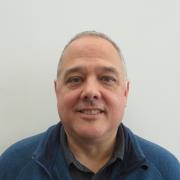
Melodie Benish, MEd, is a lead teacher for Tulsa Educare MacArthur. Melodie has studied and worked in education in Tulsa, OK, for nearly two decades. [email protected]
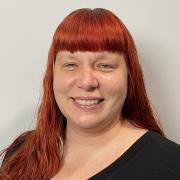
Michelle Bowers, BS, is a family advocate at Tulsa Educare MacArthur. She has been an advocate for families and their children for the past five years. [email protected]

Precious Harris, CDA, is an associate teacher at Tulsa Educare MacArthur. A Tulsa native currently working on her BS in early childhood education, she has been advocating for early childhood on the local level for nearly two decades.

Thena Knight, BS, is a lead teacher at Tulsa Educare MacArthur. She has been a lead teacher there or in other Head Start programs for over two decades.
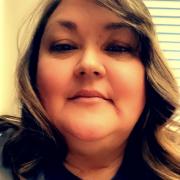
Nicole Tate, MEd, is a lead teacher at Tulsa Educare MacArthur and a member of the National Black Child Development Institute. A Tulsa native, she has worked in early childhood education for over a decade. [email protected]
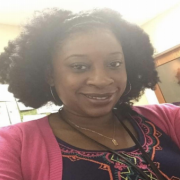
Jennie Williams, BSW, is a bilingual family advocate at Tulsa Educare MacArthur. An advocate for families and their children for several years, she is a founding member of Tulsa Educare’s Diversity, Equity, and Inclusion committee. [email protected]
